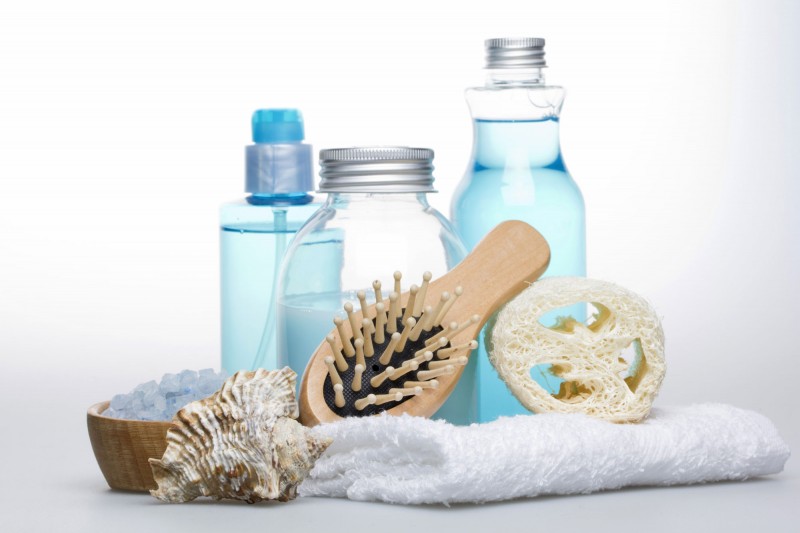
In a world brimming with personal care products, finding the ones that truly benefit your skin and well-being can be as perplexing as solving a Rubik's cube blindfolded. The aisles are bursting with enticing labels that promise miraculous transformations, but more often than not, these labels are a mirage. To safeguard your health and wallet, let's unveil the misleading terms you should steer clear of when shopping for personal care items.
The term "natural" has an undeniable allure, conjuring images of pristine landscapes and pure ingredients. However, the reality can be far from it. Shockingly, there is no universally accepted definition of "natural" in the beauty industry. This leaves room for brands to include a mere sprinkle of botanical extracts amidst a concoction of chemicals, all while flaunting the "natural" label.
Cosmetics, by their very nature, are composed of chemicals. The term "chemical-free" is as fantastical as unicorns riding rainbows. Don't fall into this semantic trap. Instead, focus on understanding the specific chemicals used and whether they align with your preferences and sensitivities.
You might assume that "dermatologist-tested" implies a seal of approval from skincare experts. However, the truth is murkier. A product could be tested by any dermatologist – even one employed by the brand itself. For reliable results, look for products tested by independent, third-party dermatologists.
"Clinically proven" sounds impressive, right? Not so fast. This label can be slapped onto a product with just a single positive test result. It might not reflect the overall efficacy of the product or its long-term effects. Don't be swayed solely by this label; dig deeper into the details.
While "hypoallergenic" implies gentleness, it doesn't guarantee a reaction-free experience for everyone. The FDA doesn't regulate this term, allowing companies to make their own claims. Always scan the ingredient list, even if a product boasts this label.
"Fragrance-free" signifies the absence of added scents, making it suitable for sensitive skin. On the other hand, "unscented" might contain fragrance-masking chemicals to neutralize odors. If you're scent-sensitive, opt for the former to avoid potential irritants.
"Organic" is more than a marketing buzzword; it's a way of cultivating ingredients without synthetic pesticides or fertilizers. But watch out for products that claim to be organic without proper certification. Seek out products with recognized organic certifications for authenticity.
The fountain of youth remains an elusive myth. Products labeled "youth-boosting" might temporarily plump your skin, but don't expect miracles. Healthy skin is a result of consistent care, not a magical potion.
Maintaining the skin's pH balance is crucial, but the term "pH-balanced" isn't regulated. Some products might throw off your skin's delicate equilibrium. Look for products with a pH close to the skin's natural level for the best results.
Revolutionary breakthroughs are rare and often come after rigorous scientific research. If a product claims to be revolutionary without substantial evidence, remain skeptical. True innovations are typically backed by credible studies.
Skin is diverse, and what works for one person might not work for another. Labels that promise suitability for all skin types might not live up to expectations. Understand your skin's unique needs and choose products accordingly.
Products boasting long-lasting effects could be laden with preservatives or heavy chemicals. While they might deliver on their promise, consider the potential trade-offs for extended wear.
Instant gratification is tempting, but true skin transformation takes time. Products that promise instant results might provide temporary fixes while neglecting the long-term health of your skin.
Endorsements from "experts" could come from individuals with dubious qualifications. Double-check the credibility of the recommending experts before taking their word as gospel.
Similar to hypoallergenic claims, "non-irritating" labels aren't foolproof. Skin reactions are subjective, so even products labeled as such could trigger irritation in sensitive individuals.
A patented formula might indeed be unique, but that doesn't automatically make it effective. Research the patent and understand how it contributes to the product's efficacy.
What's gentle for one might not be gentle for another. Context matters, so analyze the ingredient list and conduct a patch test if you have concerns about sensitivity.
Breakthrough technology should be substantiated by scientific evidence. If a product claims to utilize such technology, ensure there's credible research supporting its claims.
The urgency created by limited-time offers can pressure you into buying impulsively. Take a step back, evaluate whether you genuinely need the product, and don't let artificial time constraints influence your decision.
Similar to "natural," "all-natural" is an ambiguous term open to interpretation. A product labeled as such might still contain a mix of natural and synthetic ingredients.
Navigating the personal care product landscape demands more than a cursory glance at labels. Bursting with buzzwords and catchy phrases, these labels are designed to entice. But with a critical eye and an understanding of their true meanings, you can make informed decisions that prioritize your health and well-being.
Remember, the best labels aren't the flashiest ones – they're the ones backed by transparency, evidence, and a genuine commitment to your skin's health.
From Weddings to Festivals: Choosing the Perfect Jewelry
Unveiling the Best Smart Rings: Features and Options Explored
The Hidden Dangers of Tight Bra Straps: Bra Strap Syndrome Explained